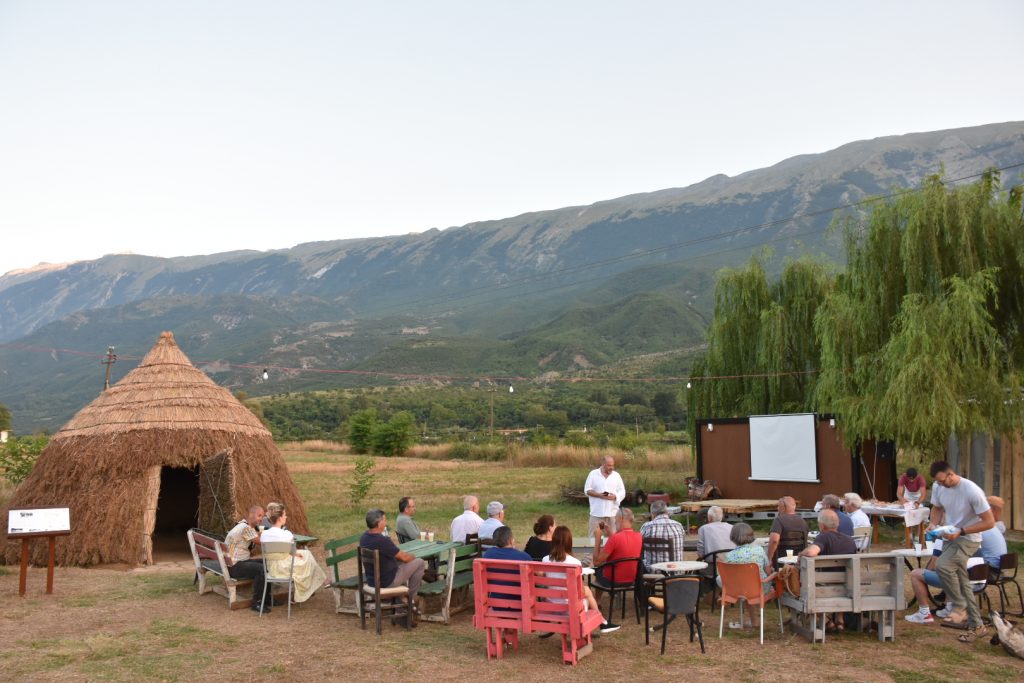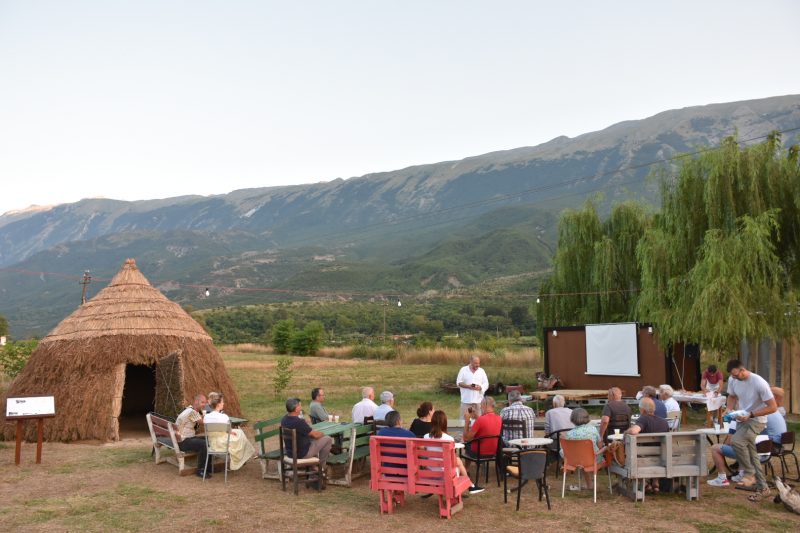|
Digital meets Culture https://www.digitalmeetsculture.net/article/vlachs-open-days/ Export date: Fri Feb 27 14:08:53 2026 / +0000 GMT |
Vlachs ‘Open days’ program of activities taking place in the area of the Upper Vjosa valley Article and images courtesy of Eglantina Serjani (CeRPHAAL) The Upper Vjosa valley, in southeast Albania, for many centuries has been a ‘transhumance route' used by the Vlach communities. Vlach are a historic people who speak a language that derives from Latin and by their ways of living, based primarily on nomadic pastoralism. Twice a year, groups of Vlach families along with their flocks migrated from winter pastures in the Ionian coast towards summer pastures in the mountainous areas of south-east Albania. Quite often, Vlach families built their summer encampments in the mountain areas extended to the southwest and northeast of the valley. This way of living persisted up to the 50s of the last century, when the economic policies established by the Albanian communist regime banned Vlach transhumance. Many Vlach families were then settled in the villages of the valley, ultimately losing their nomadic lifestyle but not their language.  Vlachs have historically suffered a cultural discrimination, which eventually hampered the preservation of many of the symbolic aspects of their culture, including their traditions, customs, rituals and material culture. Therefore, one of the main goals of CeRPHAAL, the Albanian partner institution in the INCULTUM project that coordinates Pilot 8 Vjosa the shared river, is to undertake activities aiming at recording, promoting and disseminating these lost symbolic aspects of the Vlach culture. Part of these activities included designing Vlach transhumance trails as well as reconstructing their typical historic dwelling – the kalive. The dwelling was reconstructed last year in a camping site on the outskirts of the town of Përmet, a location that correlates with one of the Vlachs' temporary daily camps set during their seasonal transhumance movements towards summer and winter pastures. The dwelling was a structure built of ephemeral material, and as such, according to those people who once lived in nomadic life required to be either repaired or reconstructed every time the Vlachs migrated to their encampment. To follow in these footsteps, in early July 2023, CeRPHAAL team undertook amendment works in the roof and the interiors walls and floors of the dwelling. This process, likewise the construction, was a learning experience, involving once again the elderly Vlachs, researchers, young specialists, students and volunteers. Succeeding the repair works of the kalive, during the 7-8th of July 2023, a number of dynamic cross-cultural activities took place at the dwelling site. One of the main domestic activities of the Vlach society in the past was wool processing, which was mainly a woman's domain. Some of the objects displayed today in the hut are implements used for making homespun clothes, such as the wool brush, distaff, hand spinning wheel, etc. By getting use of these instruments, the elderly Vlach women of the Vjosa valley demonstrated how the wool is processed and turned into yarn, while also allowing students and visitors to interact and learn by experimenting. During the Vlach ‘open days', a photo documentary titled ‘The Vlachs: a short history as seen through the lens of photography' was displayed in a wide-screen projection at the site. Also, a film documentary, featuring precious and rare moments of the Vlachs' lives in Albania from 1940 until 1970 was shown to the visitors. The activities concluded with a large celebration that involved a wider participation of Vlachs, local stakeholders, representatives of cultural institutions, and visitors at the site. |













